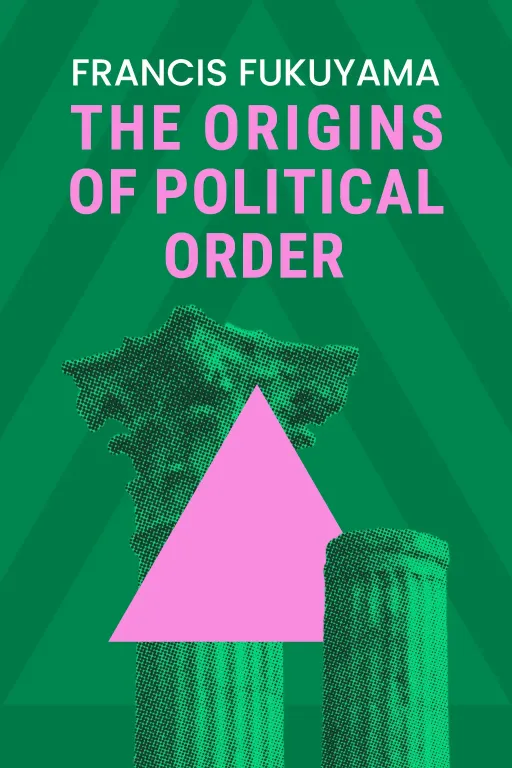
The Origins of Political Order
Politics
Francis Fukuyama
The Labyrinth of Governance: A Summary of Francis Fukuyama's "The Origins of Political Order"
Francis Fukuyama’s "The Origins of Political Order" transcends a mere historical account, presenting a profound inquiry into the intricate architecture of political institutions and their evolutionary trajectory from the dawn of humanity to the cusp of the French Revolution. With the erudition befitting his scholarly stature, Fukuyama excavates the foundational strata of governance, illuminating the interdependent roles of state-building, the rule of law, and political accountability. His canvas stretches across continents and epochs, from the ancient civilizations of China and India to the burgeoning nation-states of Europe, revealing how idiosyncratic historical currents, cultural imperatives, and economic exigencies have sculpted divergent political landscapes.
Fukuyama's central thesis revolves around the delicate equilibrium between political development and decay. He argues that the establishment of robust political institutions is not a teleological march toward liberal democracy, but rather a precarious endeavor susceptible to entropy and retrogression. To understand the persistence of institutional deficits and the volatile transitions in modern societies, Fukuyama posits a tripartite framework: the state, embodying the apparatus of power and coercion; the rule of law, imposing constraints on arbitrary governance; and accountability, ensuring that rulers are answerable to the governed.
The origins of political order, Fukuyama asserts, are deeply embedded in the transition from tribal societies anchored by kinship and communal norms to the complex, impersonal structures of modern states. He deconstructs the tyranny of kinship, where familial allegiances often eclipse collective governance, breeding conflict and fragmentation. The ascent from these primordial arrangements to the establishment of structured states underscores the paramount importance of state mechanisms, legal codifications, and accountable leadership in taming the capricious exercise of power.
The author’s comparative analysis of state formation across diverse civilizations is particularly illuminating. In ancient China, the crucible of incessant warfare and the imperative for centralized control forged a unified state fortified by Legalist principles. Conversely, in India, the intricate web of varnas and jatis, or social castes, served as a centrifugal force, impeding the consolidation of state power. By examining the divergent paths of China and India, Fukuyama exposes how cultural mores can either catalyze or impede the advancement of robust political institutions.
Moreover, Fukuyama grapples with the tension between religious and secular authority. He scrutinizes the pivotal role of canon law in Europe, which delineated the boundaries between ecclesiastical and temporal realms, thereby fostering legal checks on monarchical power. In contrast, the fusion of religious and political authority in the Islamic world and China often resulted in a concentration of power, rendering rulers less susceptible to judicial oversight.
In sum, "The Origins of Political Order" is not merely a chronicle of political evolution, but a profound meditation on the enduring challenges of governance. Fukuyama’s erudite analysis underscores the fragility of political institutions and the constant need for vigilance to safeguard the principles of justice, accountability, and the rule of law. His work serves as an indispensable guide for understanding the labyrinthine paths that societies traverse in their quest for political order.










